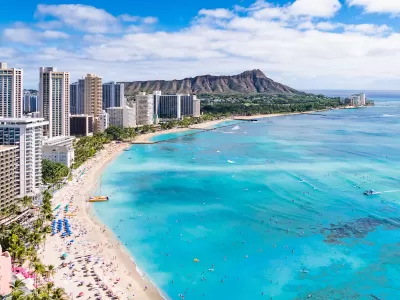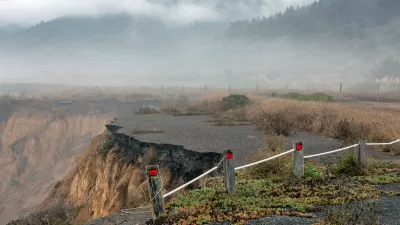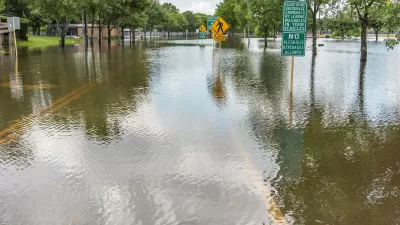The University of Hawaiʻi at Mānoa’s award-winning Waikīkī sea-level rise adaptation project combines science, architecture, and community input to create scalable solutions for climate resilience and coastal flood mitigation.

The University of Hawaiʻi at Mānoa-led Waikīkī sea-level rise adaptation project has earned national recognition, winning a design award from the Society of American Registered Architects (SARA) for its innovative and resilient architectural solutions. Spearheaded by experts from UH’s School of Architecture, Hawaiʻi Sea Grant, and the Climate Resilience Collaborative, the project combines scientific research with community-driven design to address the pressing challenges of rising sea levels, coastal flooding, and groundwater inundation in Waikīkī. This recognition underscores the importance of integrating cutting-edge science into urban planning to create sustainable and adaptable coastal communities.
The team’s research, published in Technology/Architecture + Design, highlights strategies like relocating critical infrastructure, elevating utilities, and implementing stormwater management systems as part of a holistic approach to mitigating flood risks. By engaging local stakeholders and applying scientific data, the project provides scalable solutions that can serve as a model for other vulnerable coastal areas. These efforts reflect a commitment to advancing climate resilience through interdisciplinary collaboration and design innovation, earning the team a nomination for Climate Hawaiʻi’s 2024 Climate Leadership Awards.
UH Mānoa leaders stress the urgency of addressing long-term sea-level rise impacts, as emphasized by the IPCC, which warns of centuries of continued rising seas. Interim Dean Chip Fletcher highlights the potential consequences for Hawaiʻi, including becoming unsafe and unaffordable without effective policies and proactive planning. The project serves as a critical step toward building a resilient future, demonstrating the power of combining architecture, climate science, and local input to ensure that Hawaiʻi’s communities can adapt and thrive amid climate challenges.
FULL STORY: Waikīkī sea-level rise adaptation project earns national recognition

Planetizen Federal Action Tracker
A weekly monitor of how Trump’s orders and actions are impacting planners and planning in America.

Restaurant Patios Were a Pandemic Win — Why Were They so Hard to Keep?
Social distancing requirements and changes in travel patterns prompted cities to pilot new uses for street and sidewalk space. Then it got complicated.

Map: Where Senate Republicans Want to Sell Your Public Lands
For public land advocates, the Senate Republicans’ proposal to sell millions of acres of public land in the West is “the biggest fight of their careers.”

Maui's Vacation Rental Debate Turns Ugly
Verbal attacks, misinformation campaigns and fistfights plague a high-stakes debate to convert thousands of vacation rentals into long-term housing.

San Francisco Suspends Traffic Calming Amidst Record Deaths
Citing “a challenging fiscal landscape,” the city will cease the program on the heels of 42 traffic deaths, including 24 pedestrians.

California Homeless Arrests, Citations Spike After Ruling
An investigation reveals that anti-homeless actions increased up to 500% after Grants Pass v. Johnson — even in cities claiming no policy change.
Urban Design for Planners 1: Software Tools
This six-course series explores essential urban design concepts using open source software and equips planners with the tools they need to participate fully in the urban design process.
Planning for Universal Design
Learn the tools for implementing Universal Design in planning regulations.
Heyer Gruel & Associates PA
JM Goldson LLC
Custer County Colorado
City of Camden Redevelopment Agency
City of Astoria
Transportation Research & Education Center (TREC) at Portland State University
Camden Redevelopment Agency
City of Claremont
Municipality of Princeton (NJ)





























